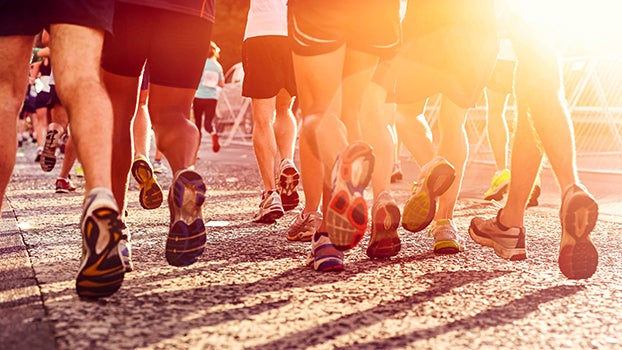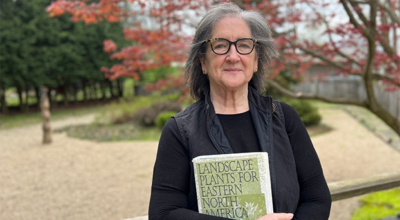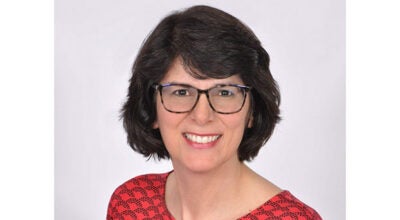Volunteers offer support to victims of domestic violence
Published 8:37 am Wednesday, April 11, 2018
Marcellus resident Tara Smith never knows when her phone is going to ring.
Sometimes it doesn’t ring for months on end. Other times it rings several times in a week. When it does ring, she is ready to go and help whoever is on the other line.
“I just try to be available whenever I’m needed. I try to always be ready for a call,” Smith said. “There are so many women and men who are dealing with domestic violence. I always want to be able to help them.”
Smith is a volunteer for Domestic and Sexual Abuse Services, an organization serving St. Joseph, Van Buren and Cass counties with the objective of leading efforts to end domestic violence and sexual assault in southwest Michigan. DASAS offers a number of services to domestic and sexual abuse survivors including a 24-hour crisis hotline, counseling, support groups, legal advocacy and access to housing and financial assistance, in addition to many other services.
According to DASAS officials, volunteers like Smith are critical to DASAS’ mission, as volunteers can help fill the gaps in covering the many needs of those seeking services for domestic violence. Currently, DASAS has around 25 active, long-term volunteers, including the organization’s board of directors.
“We really rely on and need our volunteers,” said DASAS Director of Advocacy Services Deborah Hackworth. “[Our volunteers] are very appreciated.”
Helping the cause
DASAS volunteers go through a thorough 24-hour training process that takes place over the course of several days. The training covers the history of the organization, the dynamics of domestic violence, perpetrator behavior, the effects of domestic violence on children, the dynamics and effects of sexual assault, safety planning, empathy and active listening, how to respond to victims, and how to advocate for and empower victims.
The prime directive of both DASAS volunteers and staff, Hackworth said, is to listen to victims, believe them and help them move forward.
“We train our volunteers just like we train our staff, because often our clients’ first interactions with our action are through a volunteer,” Hackworth said. “Our volunteers are often the first ones who can help someone hear that their life can be different, so we want to be sure that they are very well trained and knowledgeable about domestic violence, sexual assault and how to respond to victims.”
Both Hackworth and Smith said that interacting with and helping domestic and sexual violence victims requires special training and care.
“The biggest thing about working with survivors is believing what they are saying and not questioning it, just believing what happened to them is wrong and not saying it’s their fault,” Smith said. “Also, a lot of times, [victims] go back to that situation, so there is a lot of guilt and shame to reach out for help again. I have to be that person who reaches out to them and says, ‘It’s OK if you go back. We are still here to support you.’ Eventually, one time they are going to get it.”
Hackworth called Smith one of her best volunteers, adding that Smith is very passionate about helping domestic violence and sexual assault survivors.
“She is the best,” Hackworth said. “She has quite a story to tell.”
Smith has been a volunteer at DASAS for several years. A survivor of domestic assault herself, she started volunteering a few years after receiving help from the organization. She said that she does whatever DASAS needs her to do, from volunteering at events and fundraising to working with victims and giving speeches and testimonials.
“After I had taken classes [at DASAS] and got to a point in my life where I was more secure, self-confident and independent, I knew I really wanted to give back to the agency,” Smith said, sitting at a small table in her Marcellus home. “It’s a really amazing agency.”
Smith is so passionate about helping DASAS, she even got her husband, Jamey, whom Smith met and married after receiving DASAS’ services for a past relationship, to volunteer for DASAS. Jamey helps out with physical work for the organization and helps to organize the Survivor Stomp, an annual 5K run to raise money for DASAS.
A day at DASAS
One of Smith’s most frequent tasks is responding to emergency response calls. For these calls, Smith will respond to police reports of domestic violence incidents, go to the scene and speak with the victim to give them information about DASAS and help that is available to them.
Working these calls is difficult because, due to DASAS’ strict confidentiality rules, Smith never finds out what happens to these women, she said.
“I never get to see the follow through. I never know if they use our services or if they go back to the situation,” Smith said. “I just have to let that go. It’s in God’s hands. I have to have faith that God is going to open those doors for people.”
Despite the difficult nature of working with victims of domestic and sexual violence, Smith said that she will continue to volunteer with DASAS, as she knows first-hand how effective and important its services can be, adding that she believes her past history with domestic violence helps her relate to and empathize with the victims she works with.
“I can just relate to the women going through that, which is what I feel gives me such a passion [for volunteering]. I just want to see people move past that and see what a healthy relationship and marriage looks like,” she said. “You see so many people in those destructive relationships for so long. That is what really pushes me to do this.”
With her conviction to help domestic and sexual violence survivors growing every day, Smith said that she believes that she is making a difference in the lives of others and that she hopes that every person dealing with domestic or sexual abuse knows that help is out there for them.
“Every time we are giving people information, we are storing that in our brains, so that people know where that help is when people need it,” Smith said. “I want [victims] to know that they are not alone. There are so many people willing to stand up for them, even when they can’t stand up for themselves. We are here to walk them through this. They don’t have to go through this alone.”







